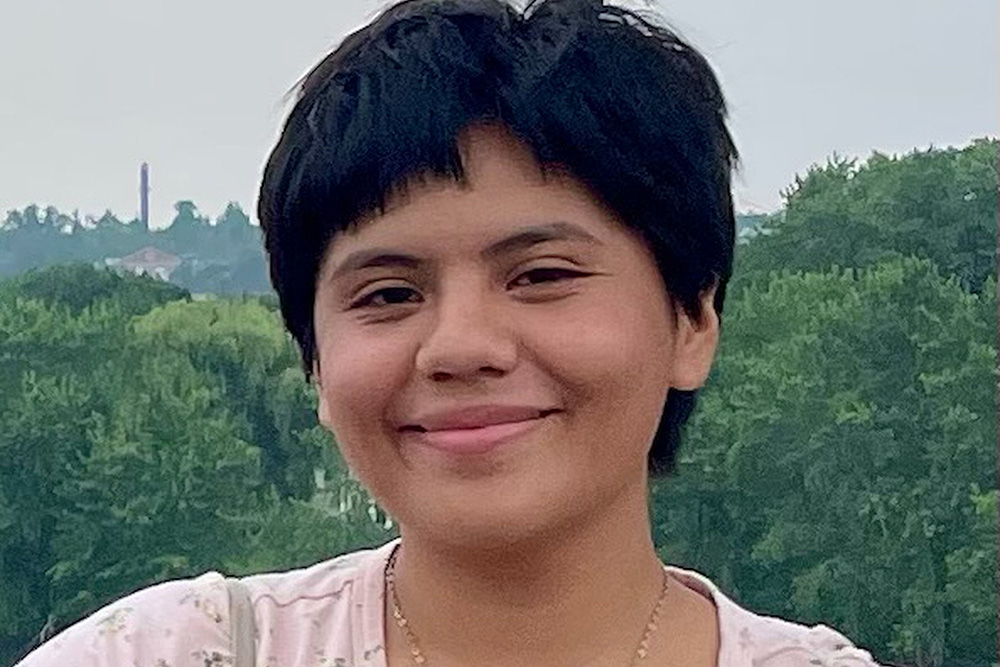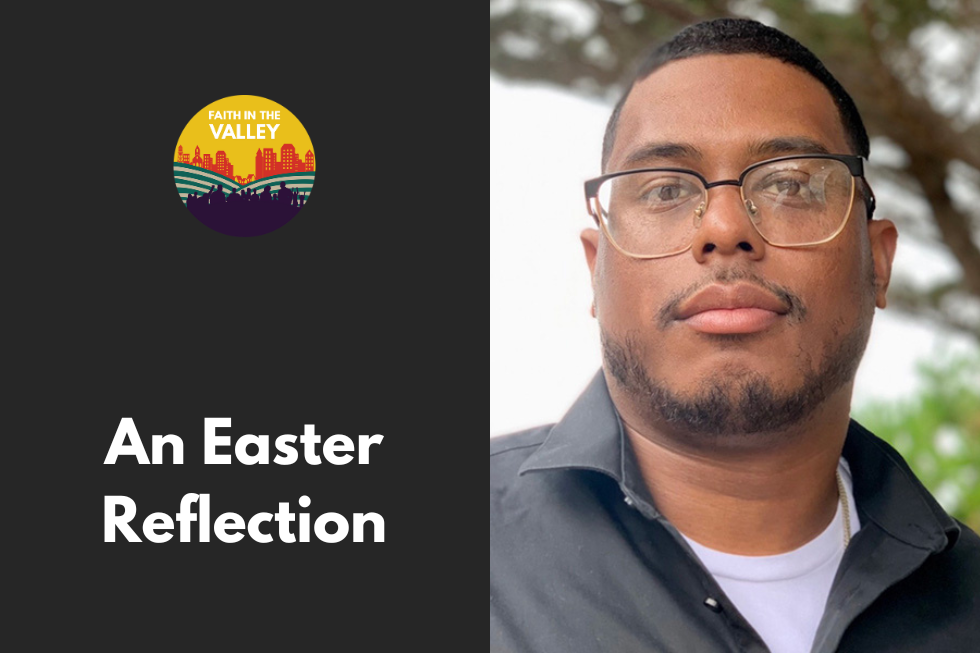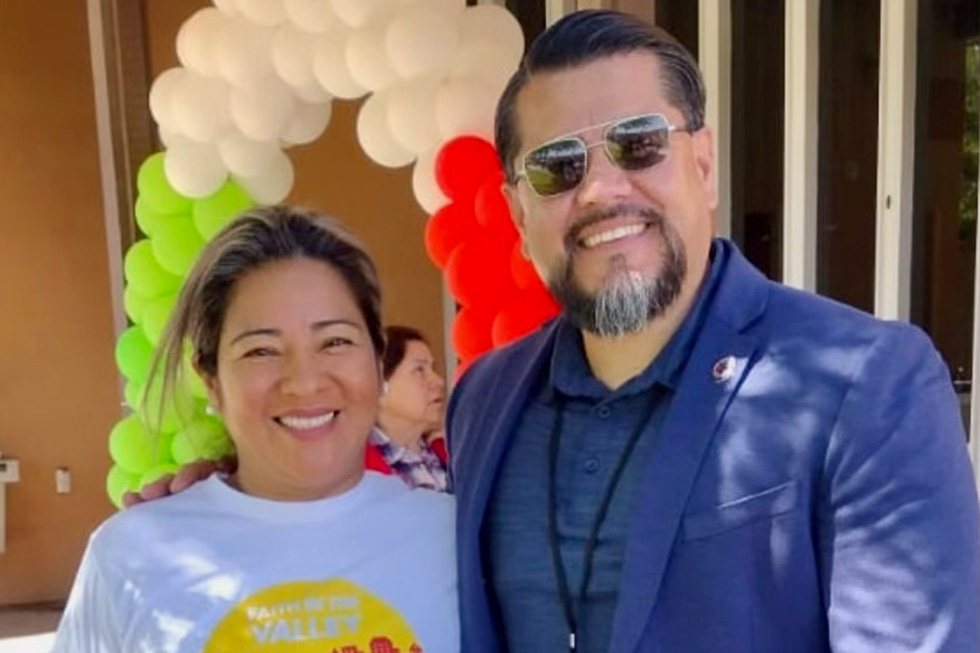Congratulations to Abby Rodela, one of our youth leaders in Kern County, who recently received…
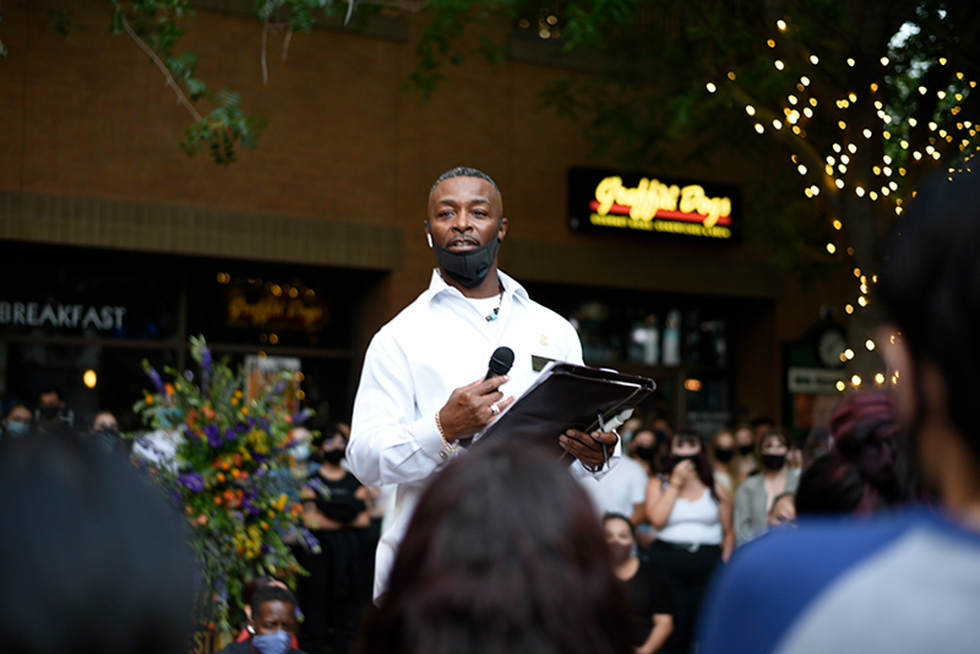
Board Profile: Michael Baldwin
Michael Baldwin is a member of Faith in the Valley’s Board of Directors and resides in Stanislaus County. In 2018, after serving 26 years of a double-life sentence, Michael settled in Modesto to use his life experience to bring healing and understanding to the traumatized and the marginalized, to bring equity to the community, to redefine justice, and to mend broken relationships. He soon started MBS Consultants, founded the nonprofit Legacy Alliance Outreach and became a sought-after community advocate, educator and paralegal.
The murder of George Floyd in 2020 pushed Michael’s leadership to a more urgent and outspoken place. Around that time, he accepted an invitation to join the Faith in the Valley Board to deepen and broaden his work to effect systemic change in Modesto, across the Central Valley, and beyond.
“We, as a society, have to be willing to take some chances on redemption, on restoration. We have to have faith. We have to become a voice for those men and women who remain incarcerated beyond the point of restoration. We also need to spend time with victims. So they get a chance to heal too.”
Michael Baldwin, Faith in the Valley Board Member
We spoke to Michael to learn more about his life’s journey and his call to all of us to take more chances for redemption, restoration, faith and healing.
What does it mean to be you and participate on the Faith in the Valley board?
I’ve gotten pretty involved with Faith in the Valley, making sure that as a board, we listen to the voices of the people who are actually in the trenches. And, I’m a board member that is actually in the trenches too. I’ve done my best to make sure that I’m a voice not just for the movement, but as someone who is Black, poor, and formerly incarcerated.
Michael talked about the role Faith in the Valley played and can play in supporting returning citizens.
Faith in the Valley supported my release from parole and the release of an individual from incarceration through letter writing. After I had done the work and was able to prove through my behavior and my actions that I am who I say I am, Faith in the Valley wanted to lend support to that. And they did. They put it in writing. We have a lot of organizations in the world today that claim to be supportive of people but they don’t put it in writing, and they don’t back it up. Faith in the Valley took it beyond lip service to put it in writing. I’m forever grateful.
Faith based advocacy is about: What do you have faith in? Do you have faith in the human spirit? Do you have faith in people’s ability to reform and to change? Where’s your proof? I think when Faith in the Valley put it in writing that they supported my release from parole, that was part of their proof. That they believed in reform, and redemption, and people being able to change and rededicate themselves to life.
I was never a bad guy. I was a hurting guy who was in need of healing. And so now that I’m healed, and healing, I can elicit healing in other people and that is what I do.
How did the healing process begin for you?
Inmates helped me change my life. Richard Mejico was the first person to walk up to me in the prison yard and ask me, “Who hurt you?” He didn’t have to ask me that. But by asking me that powerful question, he changed my life. He introduced me to myself.
In turn, I was able to affect the lives of thousands of men and now I stand on the other side of the fence, waiting to catch them, so that they get to transition and fully restore themselves into society. Because right now, as it stands, the system is broken on the inside. And when they come out, there’s nothing. There’s a vacuum. And if we don’t grab them, society will say, “Well, what happened, didn’t they get rehabilitated in there?” I’m tired of society being tricked into thinking that our justice system is effective and so the people that come out and commit crimes must be horrible people. No. They didn’t get what they needed. And so, those of us who have experienced incarceration and reformed ourselves, we are the last line of defense. And we are grabbing them and we are guiding them and most of them are coming out decent people who just need help.
What do you think it will take to reform our criminal justice system and to help bring true restoration for returning citizens?
I have a contract with the Modesto Police Department for cultural relations and community engagement work. That includes bringing minority community members into the Police Department to do simulation training with law enforcement. And with the Police Department, we actually go inside of a prison to do round table discussions with incarcerated community members, which changes the prison and the police. To me, that is what reform looks like. We can’t just legislate our way through these things. We have to “relationship” our way through these things.
To me, the pipeline to prison and to most of the debasement in our society, starts with our school system, our police, and our incarcerated community. Those are the three prongs to revitalizing our society: if we can catch our kids before they get traumatized, find a way to incorporate parents in the process, add our educators, and then add our law enforcement and our incarcerated community. If we can allow our incarcerated community to re-engage with law enforcement to build a new relationship then we are not only rehabilitating inmates, we are rehabilitating the police.
When we think about our law enforcement, and how much they have to stare into the darkness in our society, in some ways they can become that. They can become the criminals that they hunt down. And many of our incarcerated individuals, they can change. But if our law enforcement thinks that they are okay, then they don’t change anything. And I see them as victims. And most of our incarcerated individuals are victims of a crime at some point in their life and they act out of that trauma. By bringing those two communities together and letting them see how much they have in common I found that to be very, very beneficial.
Right now, I have a transitional house that is going to be able to house 10 men. As soon as I can start another one I’m going to open up one for women. And we’re going to keep on growing this thing. It’s not for the money. It is for the healing aspect, it’s for restoration. Families being made whole again.
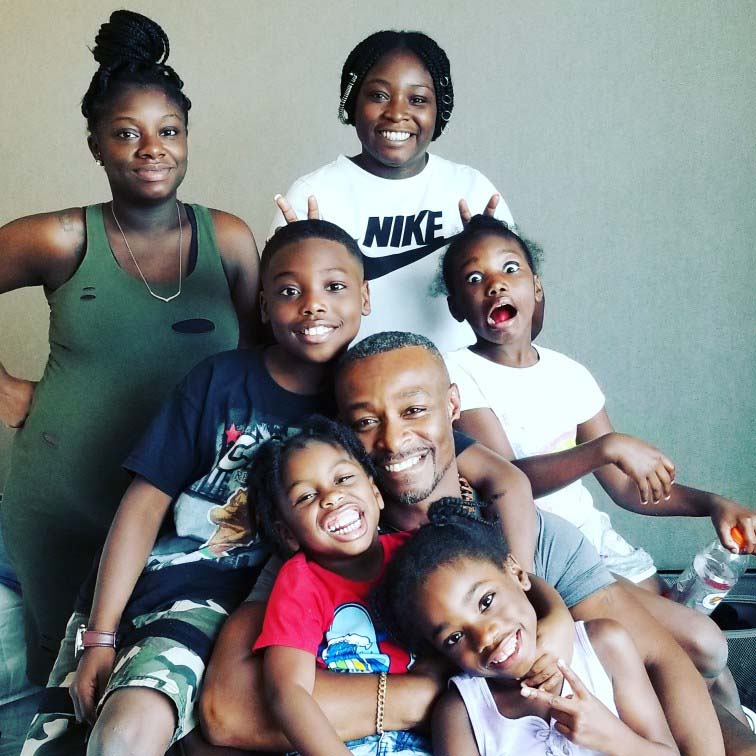
What else did you learn about yourself while you were incarcerated? What sustained you in prison?
I found poetry when I didn’t have anybody else I could talk to. I found myself in a position where everybody came and talked to me but I had nobody I could talk to. And I found poetry because I wanted to scream. I was watching Black men get killed on the street. I was watching us get a Black president and I was stuck in prison. I had destroyed my voice. I didn’t realize that my crimes and my choice to allow myself to behave that way wasn’t just taking me out of society, it was taking my voice away. It was silencing me among my children. It was silencing me.
That was the greater crime that I was committing. Silencing my voice. Silencing God’s ability to use my voice. I felt ashamed for that. That created a guilt in me that made me turn around. I realized that I didn’t have an original thought of my own in my head. Most of my thinking had come from other people. It was trauma-induced. By healing that trauma, by facing that trauma I was able to clear off that path to have a better relationship with God. Today I call him Jesus Christ. I respect other people’s ability and desire to choose their way. My job is to just clear the trash out of their path. Let them create that pathway, let them create that relationship. If you see something in the road, you should move it. And if you can’t move it, then at least warn people about it. And so, that’s my life today.
What do you see on the horizon for the next year or so?
What has happened as the result of a recent law that was passed, is that as soon as you are released on parole, you get the right to vote. The formerly incarcerated are a large voting bloc with tremendous voting power. Where you have the police union, we may be just as large of a population, with just as much voting power. I think when you have an individual who is formerly incarcerated and he involves himself in the political process, it makes him feel like he’s a part of society. By not allowing that individual to feel like he has a voice because he’s a felon, you in fact perpetuate incarceration, you perpetuate that cycle.
One of the things I’m looking into is to take on some of the educational process. Not telling people who to vote for, but educating them about the power of their voice. How to vote, how to become informed about your vote and the people you vote for, how to participate in, not just big elections, but the smaller elections. Our school boards, our councils, our county supervisors, our sheriffs, our D.A.s. Those are some of the most critical elections that we have in our communities. A lot of times when we ask for an audience with them they don’t give it to us because we’ve been ignorant of our power and of our voice.
That takes me back to how the greatest crime I committed was losing my voice. So I have come back home and now I’m exercising the power of my voice and not letting anyone silence me just because of the choices I made when I was a kid. Let me tell you who I am today.
To learn more about Michael, visit Legacy Alliance Outreach.

